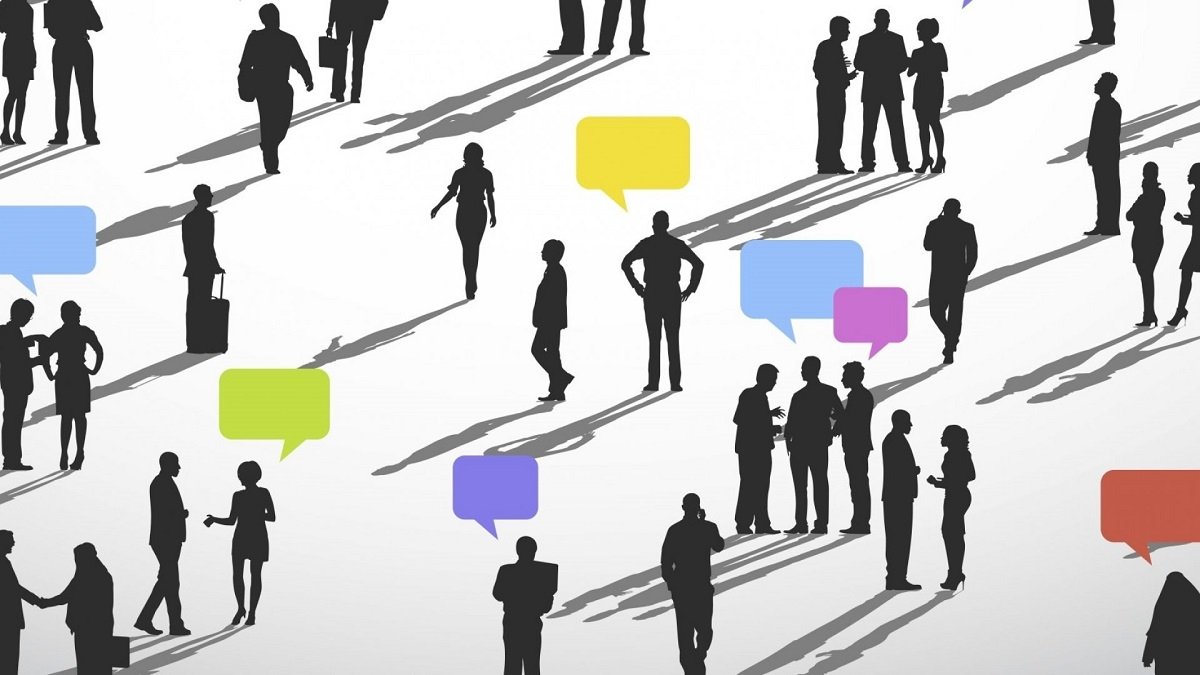Have you ever relocated to a new place or changed employment only to find yourself unsure of how to make friends? Knowing how to connect with people may be difficult. Still, having a connection is a necessary component of being human. Our lives are much more rewarding when we can accomplish things properly.
Social skills enable us to form meaningful interactions and expand our networks, from striking up a conversation with a stranger to forming new acquaintances on social media. However, connecting is more than just making friends; it’s a transferable talent that may advance both your career and personal development.
Regretfully, not everyone is eager to start establishing new relationships. Initially, it could be unpleasant and embarrassing, particularly if you have social anxiety. If it describes you, you are not alone yourself. You can learn how to connect with others too, if you’re at ease with discomfort.
Tips For Connecting with People

1. Be True To Yourself
Being authentic is the best answer to how to connect with people. Acting like someone you’re not might result in relationships based on falsehoods and uncertainty down the road.
When someone tries too hard to fit in, they make errors because they forget that connecting authentically comes from being who you are. Being real is the greatest method to ensure that your relationships are genuine, even if it may leave you more vulnerable.
2. Know And Respect Their Boundaries
When you meet someone new, you’ll probably immediately learn what their boundaries are. For instance, you could discover that a colleague is unwilling to discuss their romantic life when you attempt to become close to them. You have to respect their limits if you want to have a deep connection with them. In the end, forcing someone to disclose something they don’t want to will break the relationship, so avoid doing that.
Having said that, attempt to expand your interactions beyond the obvious. Take up more personal talks after your new buddy feels at ease. Find out what they are scared of, what they are enthusiastic about, and what their future goals are. They’ll probably share more with you if you demonstrate your willingness to be vulnerable.
3. Be Present
Being present is one of the most effective ways to connect with people. Your attention must be on the other person while you’re conversing with them. You should not be thinking about what to eat for supper or checking your phone.
Being present is one of the finest methods to learn how to communicate with others. And be more than simply mentally present. Show your acquaintance or colleague that they have your undivided attention by using body language. The person speaking won’t sense your interest in establishing a connection with them if you are not facing them.
4. Use Unique Conversation Starters
If you ask the same questions over and over again, it’s almost hard to build deeper relationships. What do you do? Or from whence do you hail? Or how are things going for you?
These lead to awful small conversations! Ask better, more in-depth inquiries instead. Fearing that it will be awkward? Studies reveal that individuals often exaggerate how uncomfortable meaningful interactions may be. This misinterpretation may lead to more superficial, exhausting, and unfulfilling encounters.
Alternatively, consider using a thought-provoking conversation starter that shows your concern to move the discussion on a more meaningful path.
5. Show Your Admiration
Actively expressing your gratitude to someone may make them happy and be an answer to how to connect with people. You could even believe that showing someone a lot of appreciation is a smart way to start a deeper conversation. If you offer someone a compliment but it’s not sincere, they will probably start to doubt you.
Use caution while posting about this on social media. It could be tempting to approach someone and shower them with praise if you’re attempting to establish a new friendship. This might be misleading if you don’t do the same thing in real life.
In the long term, it’s far better to provide less genuine praise. Because it demonstrates that you are deliberate and aren’t simply saying things to make friends, this will increase someone’s level of confidence in you. In the end, it’s the most effective method of establishing relationships.
6. Encourage Open-End Conversation
It is important to keep communication in check while attempting to move from banal themes into more in-depth ones. Most individuals speak only about themselves for more than half of a discussion on average!
Overtalking may potentially exacerbate the separation. It helps to step back from self-talk and imagine your interactions as a tennis match if you want to connect on a deeper level. You should trade inquiries, interests, and anecdotes in an equal amount of time.
7. Be A Good Listener
You may learn a great deal about individuals by paying attention to what they have to say. Consider your typical conversational style: Do you often cut people off in mid-sentence? Do you find them offensive while they speak?
Understanding people better comes from listening with an open mind. Additionally, you won’t have to repeat questions to them or ask the same one repeatedly. Because it helps them feel heard and understood, people like to be around attentive listeners. This advice is a fantastic place to start if you want to learn how to communicate with others.
8. Maintain Eye Contact
One of the simplest ways to express attention in someone else’s words and effective ways to connect with people is to make eye contact. This kind of attention to detail will make it clear to the other person that you want to develop a more intimate connection with them.
It also shows that you are content to be with them right now and are not daydreaming about moving on. Sustaining eye contact encourages open communication, helps others feel more comfortable with you, and keeps the discussion moving. Just be careful not to obtrude while you are face-to-face with someone. To establish the connection, maintain a usual level of eye contact.
Why Is It So Difficult For Certain Individuals To Connect With Others?
There are several advantages to learning how to connect with people. However, bolstering our social networks might be difficult. It might be challenging to get the courage to put yourself out there if you’ve previously had difficulty with social interactions. Social anxiety, shyness, and introversion may cause individuals to avoid interacting with others.
A person may find it difficult to connect if they suffer from mental health concerns or low self-esteem. If this describes you, you may want more assistance to feel your best. You may need the motivation to invest in yourself, improve your mental health, and expand your connections after using a site.
People’s inability to ask insightful questions is another factor in their inability to establish meaningful connections with others.
Posing insightful questions facilitates a discussion’s initial development. People won’t connect if you don’t ask questions that spark meaningful interactions. The good news is that practice and learning are both possible for this ability.
FAQ
Q: What is the best way to connect with someone?
A: Spend quality time with each other. It may be a peaceful cup of coffee, a stroll in the park, or even simply spending time together in silence. The idea is to maximize the chance that an emotional connection may either be established or strengthened by being present and holding space for one another.
Q: Why is it vital to have connections?
A: Given how deeply ingrained social connection is in human behavior, it seems obvious that the quality of our relationships—or absence thereof—has a substantial impact on our well-being. For emotional and physical well-being, relationships might be just as crucial as physical activity and a balanced diet.
Q: What is the connection’s intended use?
A: People’s resolution and attention are further strengthened by their feeling of connection to one another, which enhances the group. A group’s output may increase tenfold when its members have faith in a power bigger than themselves.










